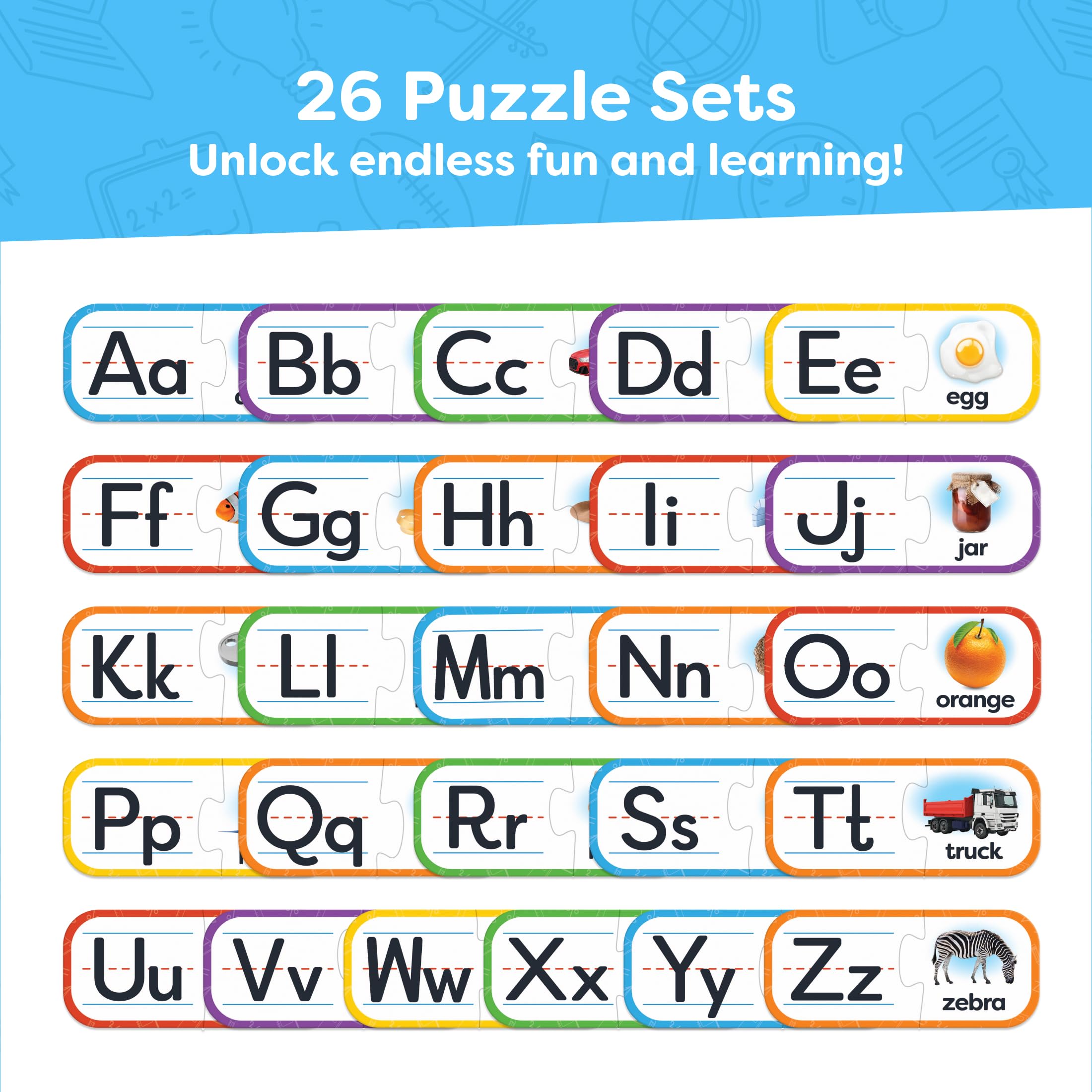








📚 Unlock the Joy of Learning with Every Puzzle Piece!
The Alphabet Puzzle Games for Kindergarten features 26 self-correcting puzzles designed to help toddlers aged 3-5 learn letters and phonics through engaging play. Each puzzle piece is uniquely interlocking, ensuring that children can only match letters with the correct corresponding images. Made from durable 2.5mm card stock, these puzzles are perfect for both home and travel, providing a screen-free learning experience that promotes early reading skills.
T**I
Love it!
These are a good quality product, and makes it a fun way for kids to learn counting! It also comes with a carry case
B**T
The best product ever
The best age appropriate gift ever
C**A
Great buy
kiddo liked these. they work well and grasp his attention. he loves puzzles so it was a win.
A**N
it works
it works very well
K**S
As advertised
Product is as advertised.
S**F
Useful and fun
My kids really enjoyed this. It was confusing for one or two but then they realized it followed same pattern of connecting. Good resource for practicing numbers and learning the words.
R**O
My students love these puzzles!
These puzzles are colorful and my students really enjoy them!
I**T
Some of the letter- sound relationships could be better
Some of the letter- sound relationships could be better especially the c and g which have soft sounds in the words provided. Also y has three different sounds - two vowel sounds and on consonant sound. I was a reading specialist and made many, many games for my students. I'm sorry i didn't publish them, but i had too much work to do to survive. Pay attention to my comments regarding how suitable this toy is. Most the the letters have good relationships, but a few could end up being confusing.If I were a parent, I would go to a teachers' store, buy a few sound picture books, cut out the pictures and make my own sound- match ups. Pay attention to the soft c and g sounds - c as in cat is hard, c as in cereal is soft with the "s" sound; g as in goat is hard, g as in giraffe is soft with the "j" sound. These letters followed by o, a, and u are hard. They are soft when followed by e, i, and y. Too many teachers, at least in Virginia are not teaching phonics and they do not know the phonics rules. There are exceptions to the rules and I told my students they were "rule breakers." Students understand and delighted in the name. English was formed by several different languages which accounts for the diversity in spelling and "rules."
Trustpilot
1 day ago
1 month ago